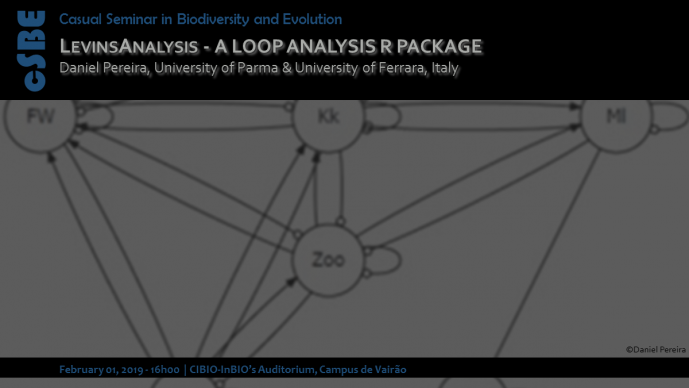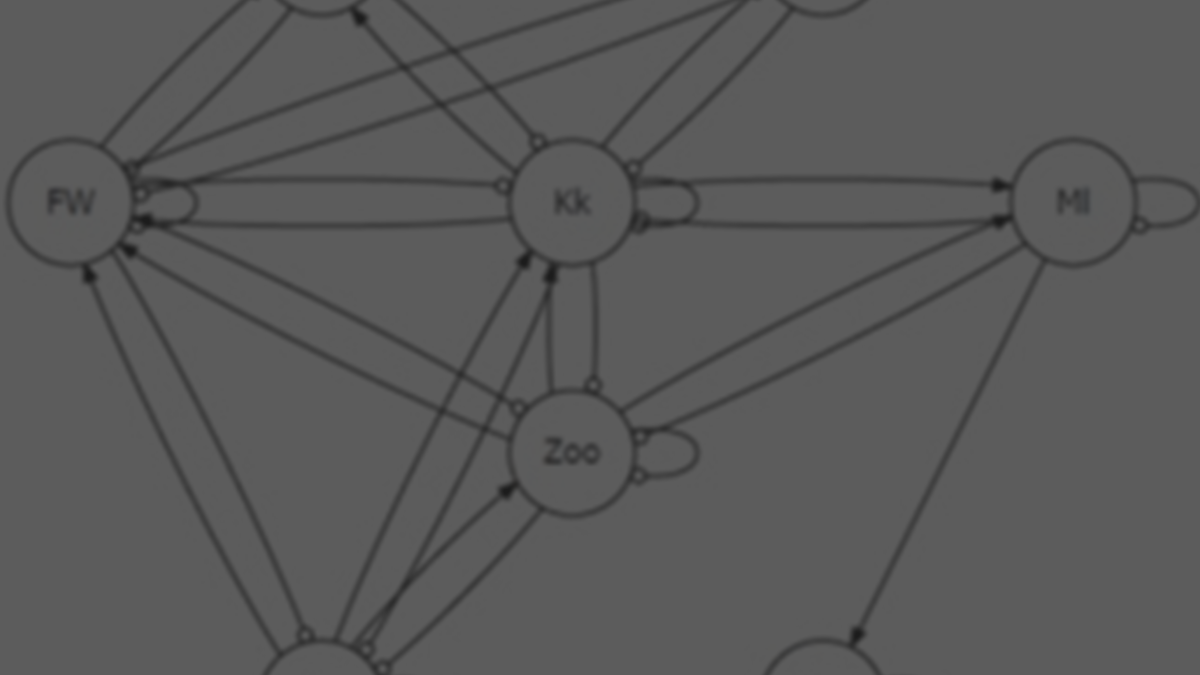LEVINSANALYSIS - A LOOP ANALYSIS R PACKAGE

CASUAL SEMINAR IN BIODIVERSITY AND EVOLUTION

The LevinsAnalysis R package is a network analysis tool based on the loop analysis methodology developed by Richard Levins to analyse complex ecological systems and generate predictions of the direction of change in the level of variables in response to perturbations. The loop analysis takes a qualitative description of the relationships between variables of the ecological system (Jacobian matrix) as the input data. It uses it to calculate the effect that a perturbation (input) on the variable i will produce on j, taking into consideration the effect caused by all the travel paths from variable i to j. The result is a table of predictions where the sign for a given variable pair indicates the direction of change of variable j after the perturbation on the variable i. The LevinsAnalysis package innovation consists in the employment of a quantitative approach to the calculation of the direction of change, achieved by assigning random strength values to the interactions (between ]0, 1]) and permitting the user to perform adjustments. The user can compute predictions for multiple concurrent inputs (e.g., when there are present a positive perturbation on variables x and y and a negative in z) and to call the information of each single-path in the system (variable involved, path length, sign, and strength). Together, these tools allow the user to better adjust their model to their ecological system and to test hypotheses regarding specific interactions and relationships strengths, thus giving the user the possibility to study the effect/importance of certain species and paths within the system. The goal of this presentation is to introduce the LevinsAnalysis R package, its functionalities and methodological advancements for management and ecological systems research, using as a case study the Caspian Sea ecological system.
Daniel Pereira is a PhD candidate in the doctoral program in Evolutionary Biology and Ecology at the Universities of Parma and Ferrara. His main subject of study is Ecological Networks analysis using the qualitative methodology Loop Analysis. He is currently finishing developing a new R package, LevinsAnalysis, and developing models for the Caspian Sea ecological network. Daniel uses the functionalities of LevinsAnalysis to identify the role of different sources of impact, the mechanics that led to the changes in this ecosystem and the role that different species and their interactions played in the system. The focus, in particular, is on the importance of overfishing of kilkas in the decline of both sturgeon and seals, and how the invasion of the Caspian by Mnemiopsis leidyi might have led to the collapse of the kilkas.
This seminar is organized in the context of the BIODIV Advanced Course Multivariate Statistics for Ecology and Evolution.
[Host: Antigoni Kaliontzopoulou, Phenotypic Evolution]
Image credits: Daniel Pereira